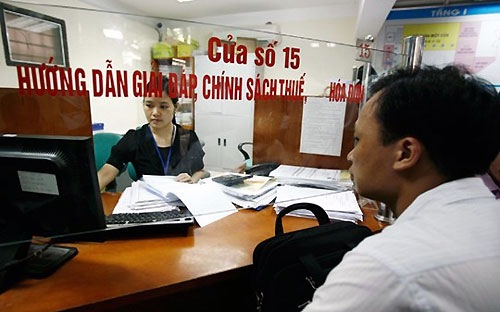The Competition Law 2018, promulgated by the National Assembly on June 12, 2018, will officially take effect from July 1, 2019. This law repeals and replaces certain provisions of the Competition Law 2004, while also adding many new provisions. The specific contents can be viewed in the article below.
1. Additional Regulations on Market Share and Combined Market Share
Based on the characteristics and nature of the relevant market, the market share of an enterprise in the relevant market is determined by one of the methods stipulated in Clause 1, Article 10 of the 2018 Competition Law.
Additionally, it supplements the methods for determining the number of units of goods sold (purchased) on the total number of units of goods sold (purchased) by all enterprises.
2. Additional Anti-Competitive Agreement Acts
In addition to the anti-competitive agreement acts stipulated in the 2004 Competition Law, Article 10 of the 2018 Competition Law specifies three new acts recognized as anti-competitive agreements, including:
- Agreement not to trade with parties not participating in the agreement;- Agreement to restrict the product consumption market, supply of goods, provision of services from parties not participating in the agreement;- Other agreements causing or potentially causing anti-competitive effects.
3. Prohibition of Agreements Between Enterprises in the Same Relevant Market
Specifically, Article 12 of the 2018 Competition Law supplements regulations prohibiting agreements between enterprises in the same relevant market that cause or potentially cause significant anti-competitive effects on the market and agreements restricting competition between enterprises operating at different stages in the same production, distribution, supply chain for a specific type of goods or services.
4. Enterprises with Less Than 10% Market Share Are Not Considered Market Dominant
Article 24 inherits the regulations from the 2004 Competition Law and adds a note on determining market-dominant enterprises.
Groups of enterprises with a dominant market position, as defined in Clause 2, Article 24, will not include enterprises with a market share of less than 10% in the relevant market.
5. Direct Comparison of Goods Is Not Considered Unfair Competition
Clause 1, Article 45 of the 2004 Competition Law stipulates that direct comparison of products is an act of unfair competition.
However, the 2018 Competition Law expands this regulation, whereby comparing goods without proving the content will still be considered an act of unfair competition.

6. Specific Regulations on Promotions in Unfair Competition
The new regulation clearly states that promotions aimed at unfair competition involve selling goods or providing services below total cost, leading to or potentially leading to the elimination of other enterprises operating the same type of goods or services.
7. All Enterprises Participating in Economic Concentration Must Submit Notification Dossiers
The old regulation in the 2004 Competition Law required only enterprises with a market share of 30-50% to submit notification dossiers before proceeding with economic concentration.
Meanwhile, the 2018 Competition Law requires all enterprises participating in economic concentration to submit notification dossiers to the National Competition Commission as stipulated in Article 34.
8. Removal of Regulation Prohibiting Economic Concentration for Enterprises with Combined Market Shares Over 50%
Article 30 of the 2018 Competition Law stipulates that economic concentration is prohibited if the enterprise carrying out economic concentration causes or potentially causes significant anti-competitive effects on the Vietnamese market, as assessed by the National Competition Commission. The regulation of holding more than 50% market share in the 2004 Competition Law has been removed.
9. Factors for Assessing the Impact of Anti-Competitive Agreements
The National Competition Commission assesses the impact or potential impact of anti-competitive agreements based on certain factors stipulated in Article 13, such as the market share level of the enterprises involved in the agreement, barriers to market entry, market expansion, etc.
10. Exemption Period for Anti-Competitive Agreements Not Exceeding 05 Years
According to Article 21, the exemption period shall not exceed 05 years from the date of the decision.

11. First-Time Regulations on Determining Significant Market Power
This is also a completely new regulation of the 2018 Competition Law specifically stipulated in Article 26. The significant market power of an enterprise or group of enterprises is determined based on several factors such as the relative market share among enterprises, financial strength, enterprise scale, technological advantages, technical infrastructure, etc.
12. Evaluating the Positive Impact of Economic Concentration
The National Competition Commission evaluates the positive impact of economic concentration based on one or a combination of the following factors:
- Positive impact on the development of industries, fields, and science and technology according to State strategies and plans;- Positive impact on the development of small and medium-sized enterprises;- Enhancing the competitiveness of Vietnamese enterprises in the international market.
13. Appraisal of Economic Concentration
The 2018 Competition Law stipulates that the appraisal of economic concentration includes two steps: Preliminary Appraisal and Official Appraisal of economic concentration.
After completing the Official Appraisal of economic concentration, based on the content of the Official Appraisal, the National Competition Commission shall issue a decision on one of the following:
- Economic concentration is allowed;- Economic concentration is allowed with conditions stipulated in Article 42 (also a new regulation in the 2018 Competition Law);- Economic concentration is prohibited.
14. Acts Violating Regulations on Economic Concentration
Article 44 specifically lists cases considered to violate regulations on economic concentration such as: Failure to notify about economic concentration; enterprises carrying out economic concentration without preliminary appraisal results; or enterprises carrying out prohibited economic concentration.
 Article table of contents
Article table of contents





.Medium.png)
.Medium.png)
.Medium.png)
.Medium.png)
